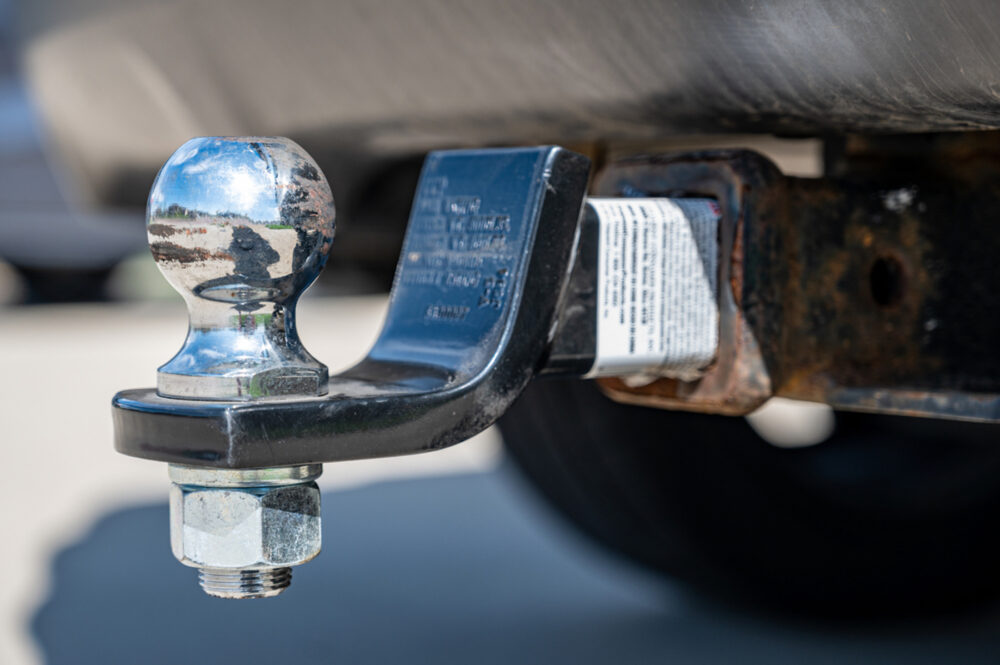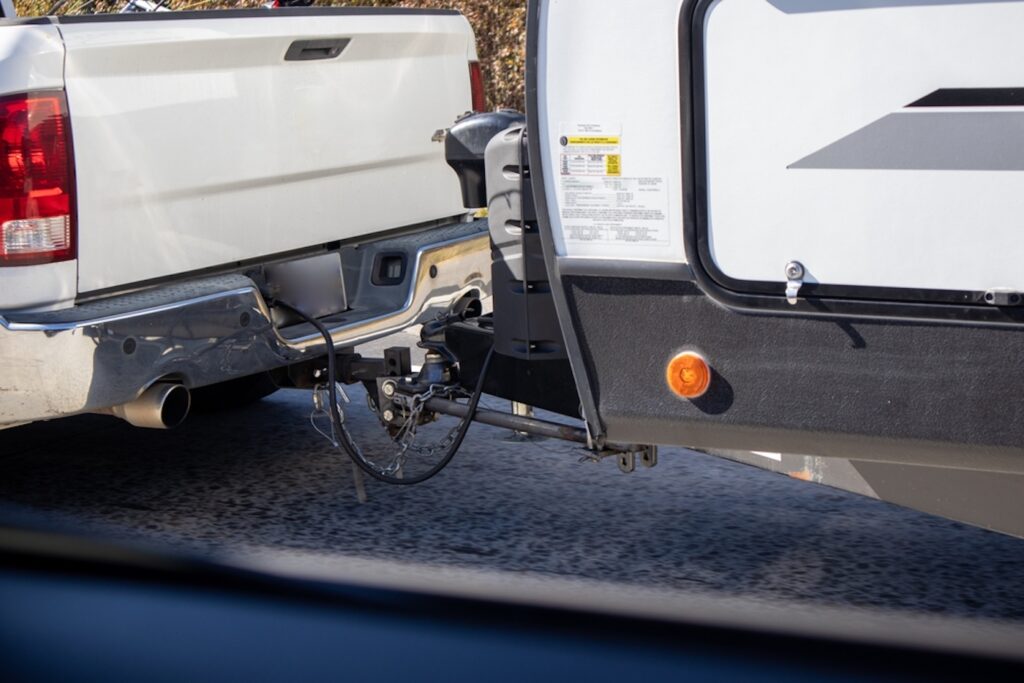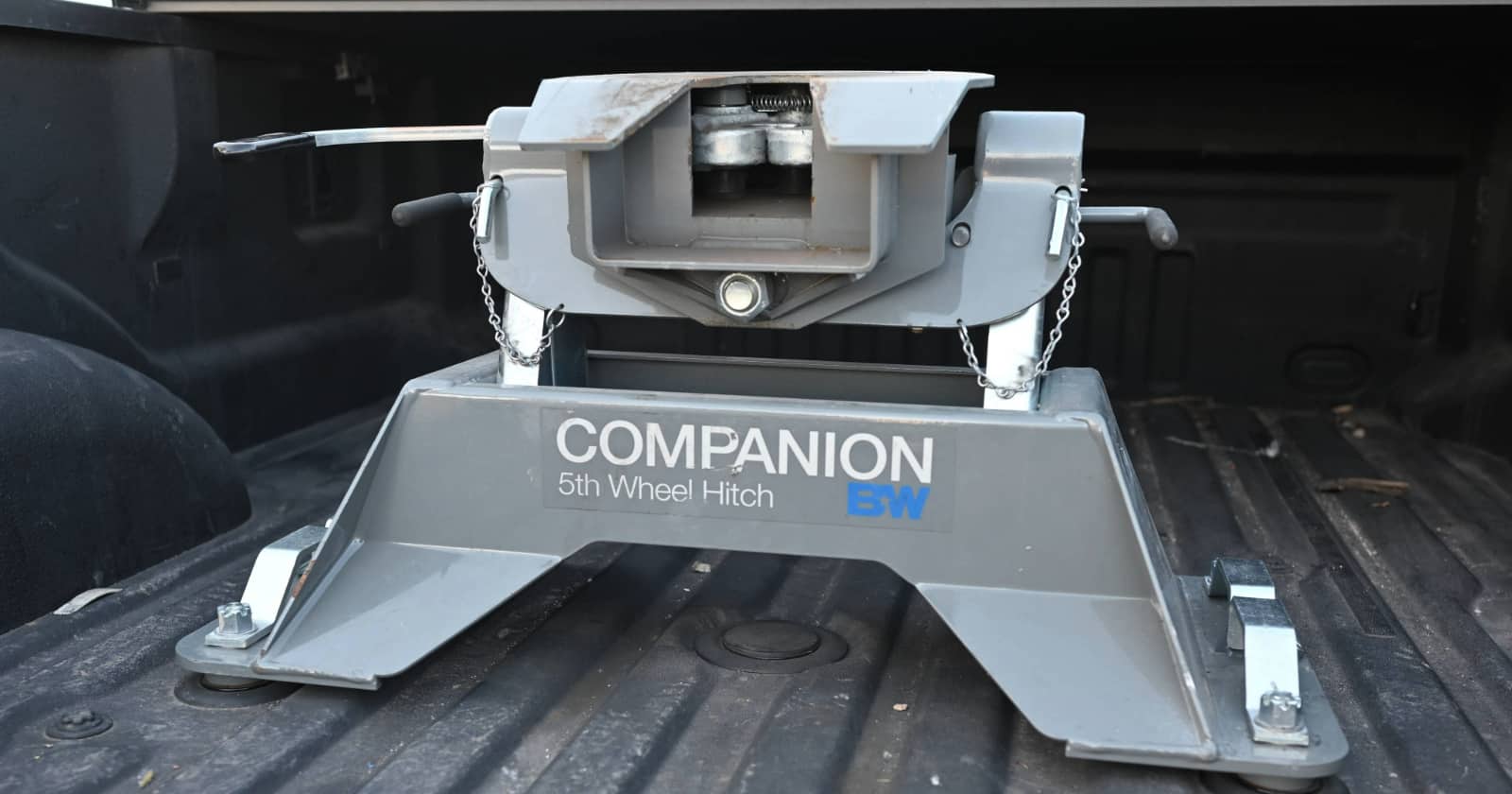
What’s The best hitch ball grease?
You probably don’t think about your hitch ball that much. Nor should you, really. However, that doesn’t mean your hitch ball doesn’t need some loving care from time to time. After all, this small component of your towing system handles all the hitch weight of your trailer.
To do its job well, the hitch ball needs a little maintenance in the form of lubrication. RVers use all kinds of lubricants for this job, but is one better than the others? In this article, we’ll look at what RVers are using and which hitch ball grease manufacturers recommend.
Why Use hitch ball Grease?
When they are new, hitch balls are shiny and smooth. Yours will stay that way if you lubricate it when you tow. Here are three good reasons to grease your hitch ball:
- It will stop your hitch from squeaking while you tow.
- Lubrication will stop your hitch ball from becoming a worn-out, rusted hunk of metal.
- Hitch ball grease will help make hitching and unhitching smooth and easy.
What Types Of Hitch Ball Grease Are RVers Using?
You can use just about any type of lubricant on your hitch ball. Anything is better than nothing. Some types of lubricants work best in dry climates but wash off in wet climates, while others attract dust and debris when the hitch isn’t being used for towing.
Here’s what RVers are using on their hitch balls and what’s good about them and bad about them:
WD-40
WD-40 is good for a lot of things. It’s a penetrating oil that removes rust, loosens stuck nuts and bolts, lubricates, and removes decals. It has 98 other uses too, but we won’t list them all here. However, WD-40 is very lightweight, and your trailer puts a lot of weight on your hitch ball. A lightweight oil won’t last long under those conditions, especially if it gets wet.
3-in-1 Silicone lubricant
3-in-1 Silicone Lubricant is great for lubricating scissor jacks, door hinges, and slide-out tracks. Some RVers use it to lubricate their hitch because it’s relatively clean. However, silicone lubricants are not heavy enough to last long and may disappear in wet conditions.
Dry Graphite spray
Dry graphite spray is a favorite chain lubricant for off-road motorcycles and mountain bikes. It can be used in the RV world as a window slide lubricant and sometimes as a hitch lubricant. It’s great because it lasts and doesn’t collect debris and dust.
Some RVers swear by it as a replacement for grease because it doesn’t collect dust and grit. Graphite is water soluble, so it can be easily washed from hands and clothes, unlike real grease.
Even though it’s a lightweight lubricant, there is no doubt that graphite spray is useful as a hitch ball lubricant. However, because it’s water soluble, graphite has a tendency to wear off or wash away in wet conditions.
What Lubricants Do Hitch Ball Manufacturers Recommend?
Even though RVers have found innovative uses for other lubricants, hitch ball manufacturers are pretty specific about what they recommend. The manufacturer recommended way to a grease hitch ball is with actual grease.
We checked with three hitch ball manufacturers, and they all said it doesn’t matter what grease you use, just as long as it’s grease.
With that being said, there are four types of grease that hitch ball manufacturers recommend. This is possibly because RVers can find other uses on the trailer for them as well as greasing the hitch ball.
4 Types Of Hitch Ball Grease Recommended By Manufacturers
Grease is the only lubricant hitch ball manufacturers recommend. Grease is a heavy-duty lubricant that is capable of providing great lubrication, even under enormous pressure.
Whichever grease you use, you’ll only need to apply a small amount to the hitch ball. Manufacturers recommend the following options:
Using grease definitely has drawbacks. Any kind of grease is messy, and it can permanently stain clothes and other items it comes into contact with.
The workaround for this potential problem is to use disposable gloves to hitch and unhitch, and then cover the hitch ball with a hitch ball cover, rubber glove, or even a plastic bag.
Track your RV maintenance
Make sure you keep track of all your RV maintenance and repairs with an online tool such as RV LIFE Maintenance. Not only can you keep all of your documents in one place, but you’ll also receive timely reminders when maintenance is due to help you avoid costly repairs and potentially serious accidents.
Related articles:



